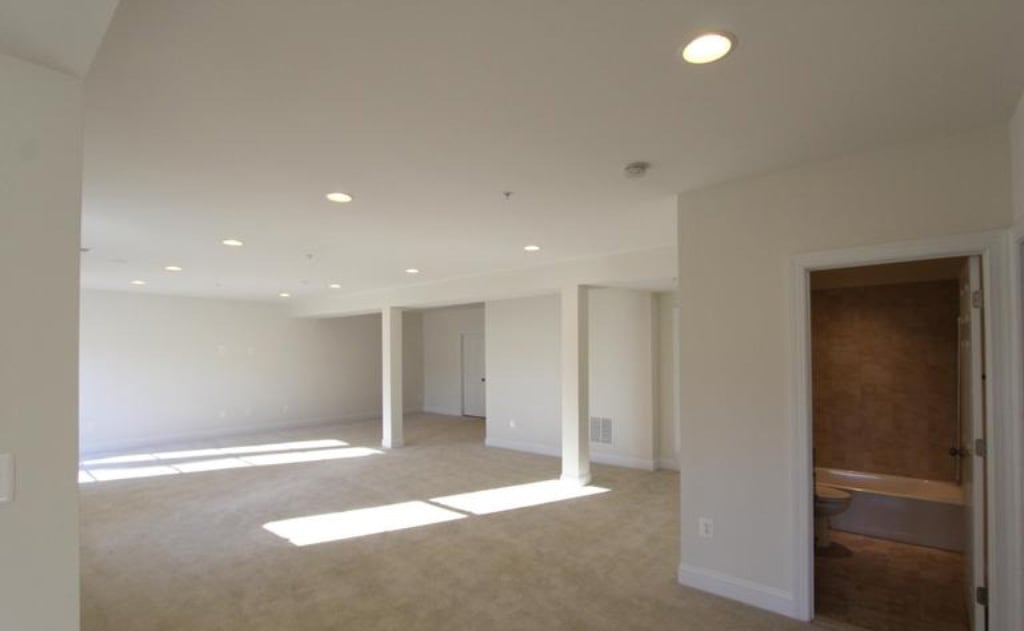
On This Page:
Basements are notorious for being cold, dank areas that homeowners avoid as much as they possibly can. The heat from your home can quickly escape through the basement and its immediate connection to the ground. This connection leads not only to the cold air associated with the basement but a higher moisture content that makes the basement unpleasant to be in. The basement also conducts heat from the main floor of your home, leaving that floor colder and raising energy costs. Basement insulation is often the answer many homeowners come to, but too many homeowners take short cuts causing them to re-install different insulation after no more than a year or two.
How to Find an Insulation Expert
Not only is it unwise to try to insulate your own basement, you should find an insulation contractor who has experience specific to basement insulation. The basement can be the trickiest place in your home to insulate. Principles for other adequate insulation in other areas of your home may be flawed for your basement. The biggest and most common problem involves the moisture inherent to your basement.
In general, but especially during the summer months, moisture can seep through your walls and get absorbed by your insulation. This leads to the formation of condensation that can eventually cause mold, rot and reduced insulating performance. For this reason, fiberglass insulation usually needs to be avoided when insulating your basement. Closed-cell foam tends to be the insulation of choice, but you also don’t necessarily want to pick a contractor who knows just enough about basement insulation to go all out, causing you to spend more money than you have to. Finding a contractor who has a number of years of experience installing basement insulation in your specific region/climate can make all the difference.
Consult a Pro When Choosing InsulationCeiling sv. Wall Insulation
Once people start thinking about basement insulation one of the first things they ask is whether they should insulate their basement walls or their basement ceiling. Wall insulation slows the heat loss from your basement to the outside. Ceiling insulation slows the heat loss from the first floor of your home into the basement.
Basement wall insulation is usually the way to go for the following reasons:
- The temperature difference between the outside air and your basement is usually greater than the difference between the basement and the rest of your home. This means slowing the heat transfer from the basement to the outside is a more efficient and more effective insulation choice.
- While ceiling insulation will help keep your first floor warmer with less energy consumption, it will likely make your basement that much colder.
- Basement ceilings often have electrical wiring, ventilation ducts, and/or plumbing that can cause patchy, leaky insulation.
Try Patching First
One thing you can try before you drop money on a basement insulation contractor is patching any cracks that might exist between the basement framing and the concrete foundation. These cracks may be large enough to cause the outside air to funnel into your basement. Ideally, you should wait for a windy day and see if you can feel these mini-air drafts. If you feel these drafts, stuff patches of insulation in cracks or seal them off with caulking. This likely won’t be a miracle cure, but it will help. If you don’t see these cracks of you can’t feel drafts, it’s probably time to call a professional insulation installer.
Easy Insulation Tips
In addition to installing insulation, there are several other DIY tricks to help keep your space free from the elements.
- Weatherstripping: Add weatherstripping to windows and doors when the space between them and the trim are visible.
- Door Sweeps: If there’s a space between the door and the floor, consider adding a door sweep to prevent air from coming through.
- Outlet Insulation: If a breeze is coming through outlets, add low-expanding spray foam insulation behind the outlet panel.
- Window leaks: Check your windows for leaks.
 Think Home Safety with Your Basement Remodel
Think Home Safety with Your Basement Remodel  Custom Wine Cellars Add Form to Function
Custom Wine Cellars Add Form to Function  Fiberglass Insulation: A Simple Energy Saver
Fiberglass Insulation: A Simple Energy Saver  8 Basement Remodeling Tips
8 Basement Remodeling Tips  Protect Your Garage With Garage Door Insulation
Protect Your Garage With Garage Door Insulation 

Are You Familiar With This Topic? Share Your Experience.